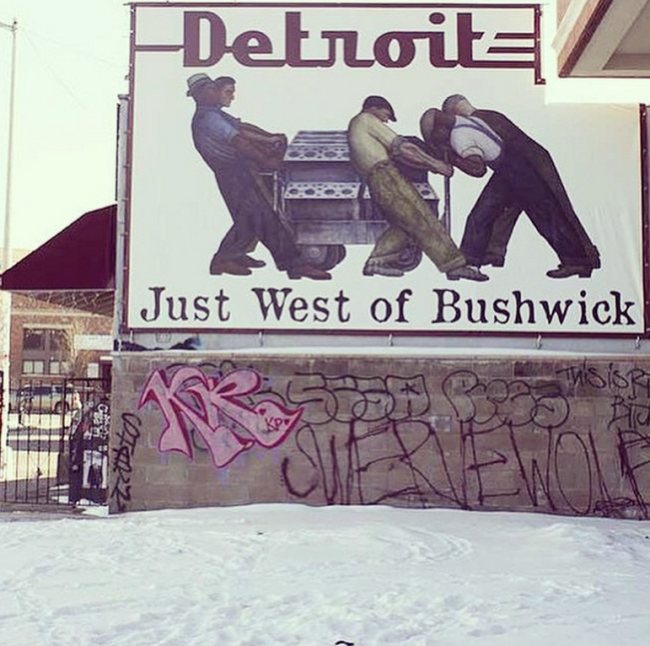Why one native New Yorker ditched Brooklyn for Columbus, Ohio
Midwest transplants are famous for coming to the city, but sometimes the trajectory happens in reverse. Dough Mama founder Perrie Wilkoff shares her story with Brick Underground senior editor Virginia K. Smith:
I moved to Columbus three summers ago, in July 2013, but had been thinking about leaving New York pretty much as soon as I moved back to the city after graduating from college in 2010. I was raised in Brooklyn, and like a lot of people, wanted to leave my hometown. And I also wasn't enjoying New York very much; I loved my friends, but the people were the only thing keeping me here. I even hated the subway—I felt hot and gross all the time, I wasn't making enough money, I wanted an easier life.
When I finally thought, 'I have to get out of here, it's now or never,' it was because I looked into my future, and thought, 'I have a bachelor's degree, I went to culinary school, and I'm just going to be a baker, and barely make enough to live. What am I going to do?' And then the idea of Ohio came along, and didn't seem as intimidating as other places. I had a friend who said he'd move there with me, which was really the nail in the coffin—if I had someone who would go with me, it wasn't as scary.
I didn't have any friends in Columbus, but that was also what was exciting about it—the opportunity to meet all new people and kind of start over, and be who I really wanted to be. In New York, I was really insecure about everything. I felt like Ohio was a place where people are really friendly and curious about a newcomer, whereas in New York, it seems like people are only interested in you if they think you're hot shit. When I moved here I was a little cynical, like 'How is everyone this nice?' But they really are.
I think I moved when Columbus was starting to change, and the real estate was going up a lot—it was actually a little bit more expensive than I thought. But right now, my apartment has two full bedrooms, an office, a dining room, a living room, a huge kitchen, a mudroom, a backyard, a porch, and a furnished attic, for $1,200/month. And it's three blocks away from my cafe. And when I first moved, I lived in a place that was close to 1,000 square feet with a parking space and a huge kitchen where I did most of my baking, for $675/month. You do get spoiled here.
I also moved to Columbus with the intention of starting my own business, but first worked at a bunch of different restaurants—five different places in the first year. So by the end of that first year, I knew enough people in the industry, and everyone was like, 'We will support you 100 percent if you start your own thing.' This city is so supportive of anything new. I had a good friend who ran the Columbus flea, and offered to split a booth with me, and right off the bat it was successful and people were telling me, 'Do more!' I don't know if it's Columbus specifically, or mid-sized cities in general, but there's not as much competition, and if you do something well, people really pay attention.
But the good and bad thing about a city like Columbus is that it becomes small; eventually you start to know everybody. Sometimes I want to be anonymous, and now I'm not—grocery shopping can take two hours because you run into 10 different people. And things can get incestuous, especially as far as the dating pool. You never meet anyone, then tell someone about it, and they're like, 'I don't know that person.'
I sometimes think about trying a new city just to see what it's like, and have even started thinking about moving back to New York, which I never thought I'd say. Up until recently every time I came back to New York I was like 'I hate it here,' but I'm also starting to see why people want to live close to their parents as they get older, and mine are still in Brooklyn. I still think of New York as home.
You Might Also Like




























